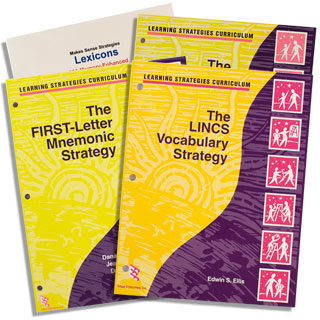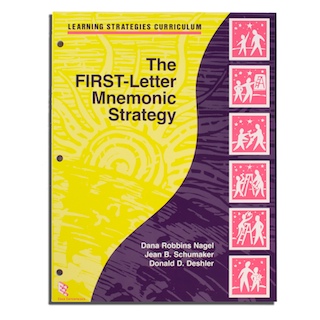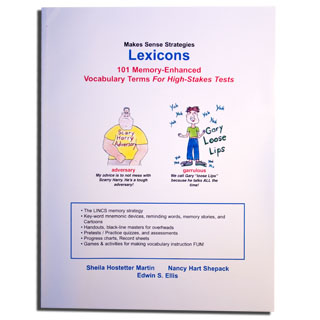
Once students start taking subject-area courses (science, social studies, history), they begin taking tests over the information in those courses. Teachers require them to know the information and be able to apply it. In the middle-school grades and higher, students are often required to master around 60 to 80 pieces of information to do well on each test. This information can include the definitions of vocabulary or terms as well as concepts, facts, and ideas. Often, students are required to take tests over the meaning of 20 to 30 vocabulary words each week. Many students do not know how to study for these tests unless they receive specialized instruction. Such specialized instruction can be provided by using the materials in the Storage Strand. Research has shown that students who master the strategies in this strand can learn how to study for tests and receive grades of Bs and As on those tests. For example, ninth-grade students who were failing their science tests before learning the First-Letter Mnemonic Strategy with an average score of 44%, earned average scores of 83% (Bs) after they learned the strategy. These kinds of gains have been achieved when students are taught the strategies in small groups of four to eight students and received daily instruction including individual practice and feedback. Such gains may not be achieved if students do not receive individual feedback on their practice attempts.
- Display 15 Products per page




